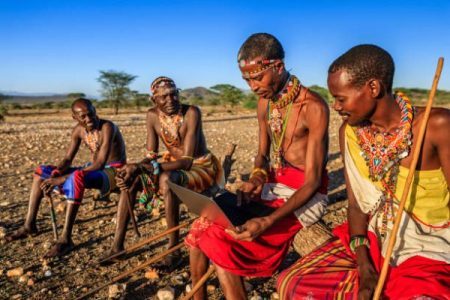I believe in the power of community networks. They have the full potential of facilitating universal internet access and promoting its social and economic growth. They are the closest to the internet end-users and are the best placed on integrating cultural and social internet use with humanitarian purposes.
Let us look into history. The internet was initially not meant for the common person. It was initially designed for the US Department of Defense, research and academic organizations. From the start of ARPANET (Advanced Research Projects Agency Network) in the ’60s to the birth of the Internet in 1983, not a single moment did anyone think that it could be a universal facility that would be accessed by anyone, anywhere.
Over the years, we have seen internet access and availability display a top-to-bottom approach. Its design and changes have shown an impulsive response to address the elite members of society: a contrast to most start-ups that work from the bottom up.
Through the works of civil society like KICTANet that seek to ensure equal internet access and representation through policy regulation reviews, multi-stakeholder engagements, and open forums, the above scenario has changed and birthed community-centered approach towards internet access like the Community Networks.
Community networks ensure increased internet connectivity. They also facilitate access to and availability of the internet to the marginalized sections of the community. A complex divide that is superimposed by intersections of poor governance, lack of investment in digital infrastructure, digital illiteracy, and socio-economic discrimination.
It is these very entities that hold the key to promoting the inclusion of persons with disabilities in internet access and the adoption of assistive technologies. They possess the capacity to promote digital literacy and the eventual adoption of ICT services by the public. A dream that the Kenyan government commits to actualize through its Kenya National Digital Master Plan 2022-2032, the rollout of the digitization of all government services, and the launch of public Wi-Fi hot spots by the Ministry of Information, Communications, and the Digital Economy. A move that seeks to tap into the digital economy.
On the 1st and 2nd of March, 2023, ITU and APC convened a roundtable discussion at Strathmore University towards understanding the role of community networks, and the challenges and opportunities revolving around internet infrastructure, local content and capacity building at the last mile. The forum brought together all community network stakeholders among them being KICTANet, the Communication Authority (CA), ICT Authority (ICTA), Mozilla, and Digital Access Program (DAP) by the Foreign, Commonwealth & Development Office (FCDO).
During their presentation, ICTA highlighted that a total of 10,798 sites have been identified and mapped for the hot spots. In the same discussion, ICTA also presented a strategy it intends to use to fast-track the hot spots’ sustainability and the need to involve end users for better monitoring and evaluation.
In conclusion, it is community networks that are best placed to link the government to the people. They have a clear understanding of local communities, and their set-up is mostly focused on content localization and last-mile connectivity. Thus, they form the best platform and entity to collaborate with to reach out to locals, offering digital literacy, maintenance and ensuring the sustainability of the project through promoting social, and economic growth.
Nicodemus Nyakundi is an ICT Access and Equality Fellow for PwDs at KICTANet. He has a background in IT and is passionate about digital inclusivity.
![]()




